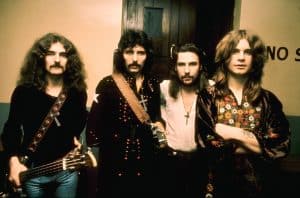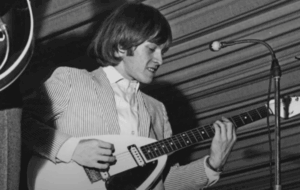5 Times a Rock Star’s Final Release Was a Total Letdown
via Acoustic Rock Collection / YouTube
Even the most respected rock musicians can end their careers on a low note. These final albums, released by legendary artists, failed to meet expectations and left fans disappointed. Whether due to creative differences, changes in band lineups, or shifts in musical direction, these records didn’t capture the magic of earlier works. Here are six examples where the last release from a classic rock star didn’t live up to their legacy.
Creedence Clearwater Revival – Mardi Gras (1972)
Creedence Clearwater Revival’s final album, Mardi Gras, marked a significant departure from their earlier successes. After rhythm guitarist Tom Fogerty left the band, the remaining members decided to share songwriting and vocal duties equally. This change led to an album with inconsistent quality and a lack of cohesion. Critics were not impressed; Rolling Stone’s Jon Landau called it “relative to a group’s established level of performance, the worst album I have ever heard from a major rock band.”
The album’s reception reflected the internal tensions within the band. Despite its commercial performance, peaking at No. 12 on the Billboard charts, Mardi Gras failed to resonate with fans and critics alike. The lack of a unified vision and the departure from their signature sound contributed to its status as a disappointing final chapter for the band.
The Clash – Cut the Crap (1985)
Cut the Crap was The Clash’s last studio album and is often regarded as a misstep in their discography. Following the departure of key member Mick Jones, the band attempted to continue with a new lineup. However, the album suffered from poor production choices, including the use of drum machines and synthesizers that clashed with their established punk sound. Critics and fans alike found the album lacking in the energy and authenticity that characterized their earlier work.
The internal conflicts during the recording process further hampered the album’s quality. Producer Bernie Rhodes’ heavy-handed approach led to a final product that felt disconnected from the band’s roots. Despite the inclusion of the single “This is England,” which received some praise, the album as a whole failed to make a lasting impact and is often omitted from discussions of the band’s legacy.
Lou Reed – Lulu (Ft. Metallica) (2011)
The collaboration between Lou Reed and Metallica on Lulu was met with confusion and criticism. The album combined Reed’s spoken-word style with Metallica’s heavy instrumentation, resulting in a challenging listening experience. Many fans and critics found the album’s concept difficult to engage with, and it was described as “a truly odd musical pairing” that didn’t resonate with audiences.
Despite the artists’ intentions to push creative boundaries, Lulu was widely panned for its lack of cohesion and accessibility. The album’s experimental nature overshadowed its musical content, leading to its reputation as a disappointing final release for both Reed and Metallica in this collaborative effort.
Van Halen – A Different Kind of Truth (2012)
Van Halen returned with A Different Kind of Truth after a long break and brought back David Lee Roth on vocals. Many of the tracks were based on old demos from the late 1970s, which some fans recognized. The album tried to blend the group’s early sound with a modern touch, but it didn’t quite come together. Critics felt the material sounded uneven, and Roth’s vocals were not as strong as before.
It was also the only full-length studio album to feature Wolfgang Van Halen on bass, replacing Michael Anthony. The change in lineup and production style gave the album a different feel. While it had a few moments that reminded fans of the band’s peak years, the overall response was mixed. It ended up being Van Halen’s final album before Eddie Van Halen passed away in 2020.
The Who – Endless Wire (2006)
Endless Wire was The Who’s first studio album in 24 years, and it came without drummer Keith Moon or bassist John Entwistle, both of whom had died. Pete Townshend and Roger Daltrey carried the project, which included a mini-opera and several reflective tracks. While some fans appreciated the effort, others felt the album lacked the energy of the band’s earlier work. The songs often sounded more like solo material than a true group effort.
Many tracks were quiet and introspective, with few of the loud, aggressive sounds fans expected from The Who. Critics noted that the production was uneven and the songwriting didn’t match the band’s classic albums. Despite charting well and sparking a tour, Endless Wire was seen by many as a weak return for one of rock’s biggest names.
















